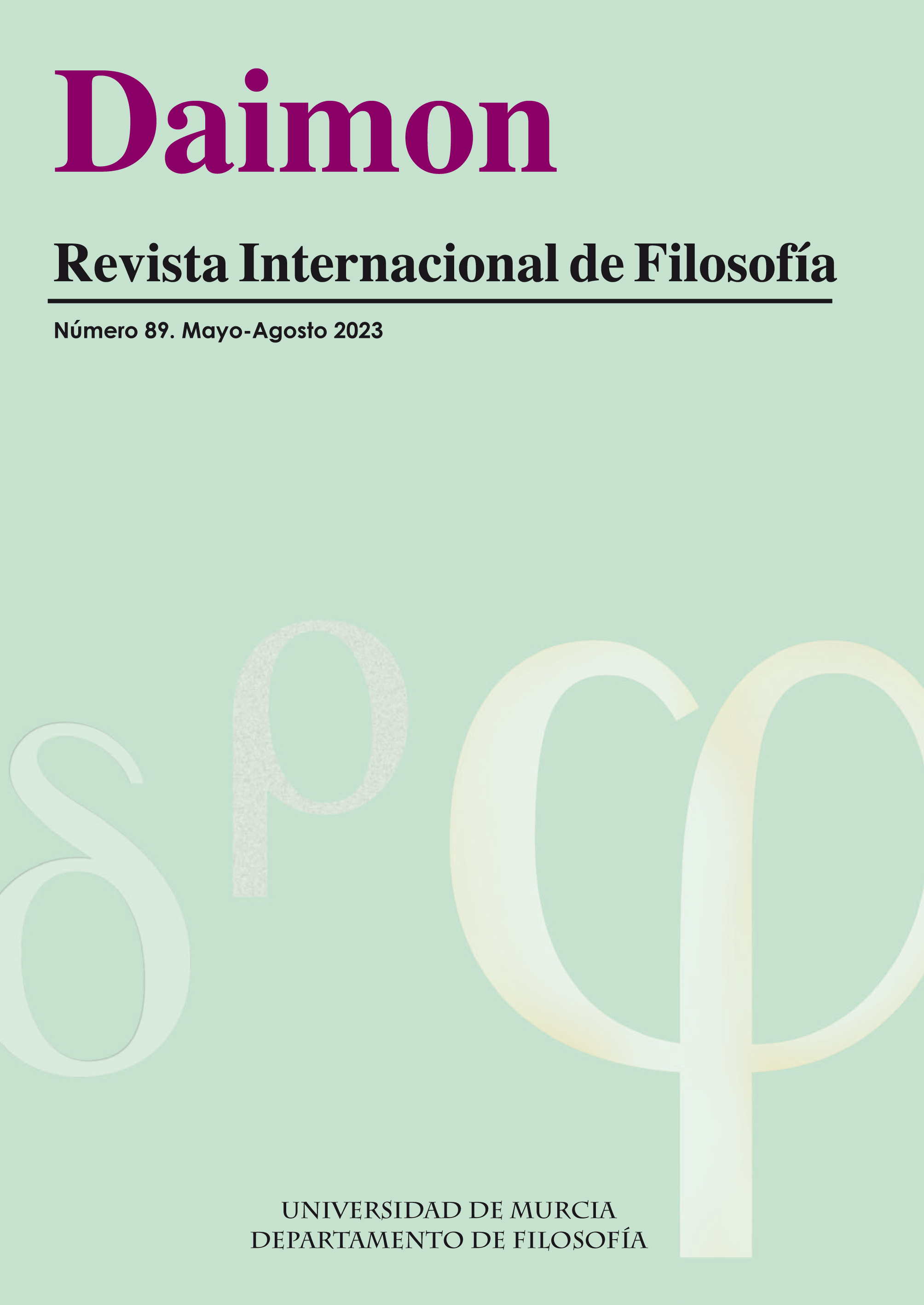Deflationary Truth, Ordinary Truth and Relative Truth
Resumen
Horwich (Mind 123(491), 2014) has argued that only someone with inflationary tendencies could feel inclined to endorse truth relativism. In doing so, he argues that deflationism about truth entails the denial of relativism. If sound, Horwich’s argument could entail that truth relativism is incompatible with any conception of our ordinary truth predicate according to which there is some sort of equivalence between a ground-language claim that p and the corresponding claim that p is true. Arguably, any story the relativist might give about our ordinary truth predicate, it should entail some such equivalence. Hence, there is a problem for truth relativism that needs to be addressed.
Descargas
-
Resumen573
-
PDF 293
-
HTML 171
Citas
Evans, G. (1985), «Does tense logic rest upon a mistake?», in: Evans, G.: Collected papers, Oxford: Clarendon Press, pp. 343–363.
Field, H. (2001), «Disquotational truth and factually defective discourse», in: Field, H.: Truth and the absence of fact, Oxford: Oxford University Press, pp. 222–258.
Field, H. (2009), «Epistemology without metaphysics», Philosophical Studies, 143(2), pp. 249–290.
García-Carpintero, M. (2008), «Relativism, vagueness, and what is said», in: García-Carpintero, M. and Kölbel, M. (eds.): Relative truth, Oxford: Oxford University Press, pp. 129–154.
Gariazzo, M. (2016), «Can we make sense of MacFarlane’s relative truth?», Manuscrito, 40(2), 39–70.
Gariazzo, M. (2019), «Assertion and assessment sensitivity», Kriterion, 143, 355–376.
Greenough, P. (2011), «Truth-relativism, norm-relativism, and assertion», in: Brown, J. and Cappelen, H. (eds): Assertion, Oxford: Oxford University Press, pp. 197–231.
Horwich, P. (2014), «An undermining diagnosis of relativism about truth», Mind, 123(491), pp. 733–752.
Kaplan, D. (1989), «Demonstratives: an essay on the semantics, logic, metaphysics, and epistemology of demonstratives and other indexicals», in: Almog, J., Perry, J., and Wettstein, H. (eds): Themes from Kaplan, Oxford: Oxford University Press, pp. 481–563.
Kölbel, M. (2002), Truth without objectivity, London: Routledge.
Kölbel, M. (2008a), «Truth in semantics», Midwest Studies in Philosophy, 32, pp. 242–257.
Kölbel, M. (2008b), «Motivations for relativism», in: García-Carpintero, M. and Kölbel, M. (eds.): Relative truth, Oxford: Oxford University Press, pp. 1–38.
Kölbel, M. (2008c), «‘True’ as ambiguous», Philosophy and Phenomenological Research, 77(1), pp. 359–384.
Kölbel, M. (2009), «The evidence for relativism», Synthese, 166(2), pp. 375–395.
Lewis, D. (1980), «Index, context, and content», in: Kanger, S. and Öhman, S. (eds): Philosophy and grammar, Dordrecht: Reidel, pp. 79–100.
MacFarlane, J. (2005), «Making sense of relative truth», Proceedings of the Aristotelian Society, 105, pp. 321–339.
MacFarlane, J. (2014), Assessment sensitivity: Relative truth and its applications, Oxford: Clarendon Press.
Williams, M. (2005), «Meaning and deflationary truth», in: Armour-Garb, B. P. and Beall, J. C. (eds): Deflationary truth, Chicago: Open Court, pp. 301–320.
Wright, C. (1992), Truth and objectivity, Cambridge MA: Harvard University Press.
Wright, C. (2008), «Relativism about truth itself: Haphazard thoughts about the very idea», in: García-Carpintero, M. and Kölbel, M. (eds.): Relative truth, Oxford: Oxford University Press, pp. 157–185.
Derechos de autor 2023 Daimon Revista Internacional de Filosofia

Esta obra está bajo una licencia internacional Creative Commons Reconocimiento-NoComercial-SinObraDerivada 3.0.
Las obras que se publican en esta revista están sujetas a los siguientes términos:
1. El Servicio de Publicaciones de la Universidad de Murcia (la editorial) conserva los derechos patrimoniales (copyright) de las obras publicadas, y favorece y permite la reutilización de las mismas bajo la licencia de uso indicada en el punto 2.
2. Las obras se publican en la edición electrónica de la revista bajo una licencia Creative Commons Reconocimiento-NoComercial-SinObraDerivada 3.0 España (texto legal). Se pueden copiar, usar, difundir, transmitir y exponer públicamente, siempre que: i) se cite la autoría y la fuente original de su publicación (revista, editorial y URL de la obra); ii) no se usen para fines comerciales; iii) si remezcla, transforma o crea a partir del material, no podrá distribuir el material modificado.
3. Condiciones de auto-archivo. Se permite y se anima a los autores a difundir electrónicamente las versiones pre-print (versión antes de ser evaluada) y/o post-print (versión evaluada y aceptada para su publicación) de sus obras antes de su publicación, ya que favorece su circulación y difusión más temprana y con ello un posible aumento en su citación y alcance entre la comunidad académica. Color RoMEO: verde.











